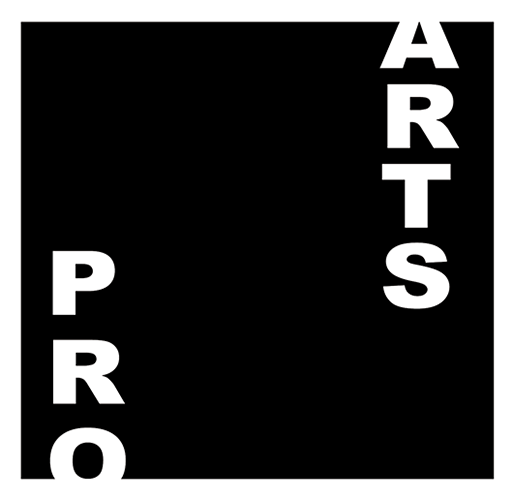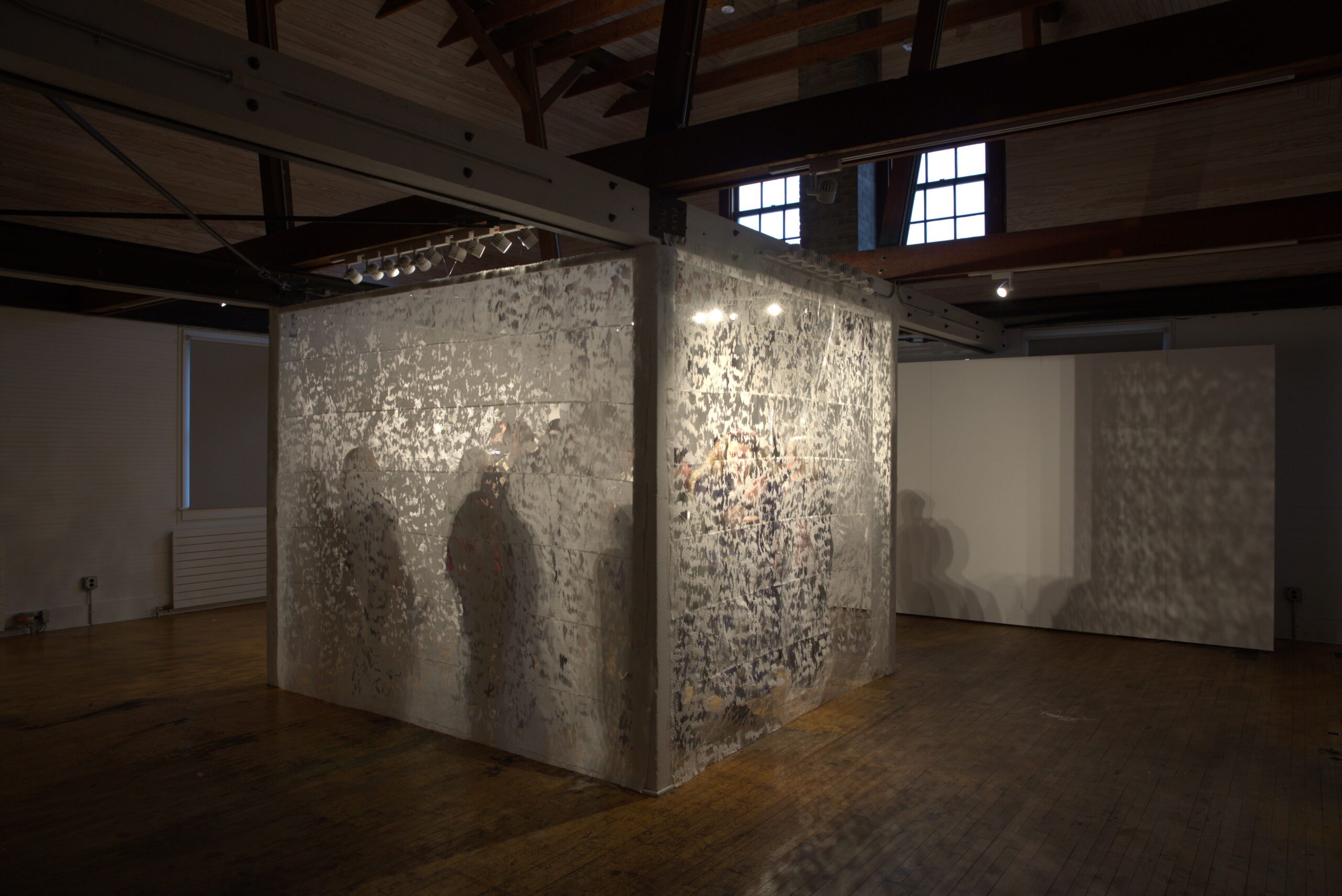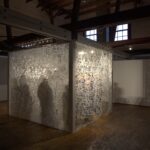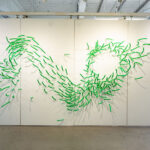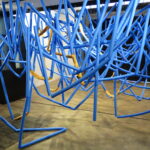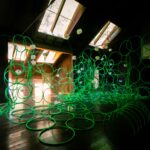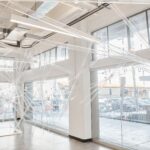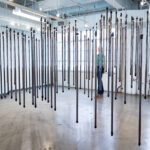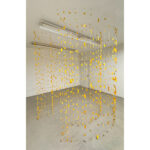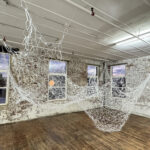Based in the New York Metropolitan area, Josué Morales Urbina is an award-winning installation and sculpture artist, whose work primarily explores transcultural displacement and dépaysement. Among frequent themes that arise in his art are a pervading sense of foreignness and the impermanence of memory, which he examines via contemplative abstract installations. These works are composed of a broad range of materials, including ordinary household objects such as, drinking straws, coffee beans, toasted white bread, rubber bands, and edible materials.
The questions of foreignness in Morales Urbina’s work are rooted in his being born in Guatemala City, Guatemala, and having lived across the United States as a “third culture kid” (an individual raised in a culture other than their parents’). Yet, as much as he creates to engage audiences in such explorations, Urbina’s artmaking has also afforded him the self-discovery that he, ultimately, creates art “to build a home for myself; my art practice is my home.”
Morales Urbina’s career is marked by numerous accomplishments, including solo and group exhibitions in New York, New Jersey, Pennsylvania, New Mexico, Oregon, and Texas. An alum of the prestigious Skowhegan School of Painting and Sculpture, he has completed residencies at the Vermont Studio Center, La Napoule Art Foundation’s Résidence d’Artiste Internationale, Centrum in Washington state, GoggleWorks, Byrdcliffe Arts Colony, NARS International AIR, SVA Artist Residency Program, and a current Textile Arts Center’s TAC AIR 16. In 2023, he was recognized as a Sculpture Finalist by the New Jersey State Council on the Arts and was awarded the 2024 Jersey City Arts Council Individual Artist Fellowship. Morales Urbina has also served as a panelist for various residencies and grants. He holds a Bachelor of Fine Arts with a minor in Art History and Criticism from the University of Texas at San Antonio.
Statement:
Transcultural displacement and dépaysement: A longing for a sense of home in a foreign environment.
Born and raised in the small country of Guatemala, and having lived throughout the United States since my twenties, I don’t seem to belong in the U.S. and am often perceived as other. To my American peers, I have to explain where Guatemala is; within the Latin-American community here, I don’t come from where the majority comes from. And even when traveling back to Guatemala, I don’t belong there either – my speech is slightly different, and I have to remind myself to use a Guatemalan accent; I don’t dress the same; my life experience is unlike theirs. Ever a foreigner, always neither here, nor there, I create art to build a home for myself; my art practice is my home.
In exploring transcultural displacement, my installations often touch on closely related questions of foreignness, the impermanence of memory, and concepts of home, all of which range from introspective inquiry to public dialogue.
To touch on foreignness, for example, In Rota tu Volubilis I purposely created a physical divide between two readers, so that even though they are viewing the piece together, they must do so from different perspectives. In contemplating concepts of home for Building a Childhood Home for all TCK, I am building a home for all third culture kids (TCK), including myself. In extending the concept of home to global warming, I use biodegradable materials to speak to this pervading concern. Questions of global warming also appear in Nostos.
The choice of materials for my installations is generated by my memories. A memory triggers the material, and the material leads the way. The material shows me how it behaves and reacts; it tells me what it wants to do. I also work with multiples and series; often finding that the material in one piece informs the other(s), thereby becoming a continuum body of work.
My work is also ephemeral; it is transient as my installations live for a finite set of time and eventually cease to exist, as humans do. With Bet Lehem, the use of toasted bread dictated that I work faster than usual, as the bread lost moisture with each day and gradually diminished. The bread became stale, broke, and eventually disappeared.
For my audience, I simply want them to experience the work; to engage; to let the installations make them see the world slightly differently. And if they still have time, to think about what it means to belong.
